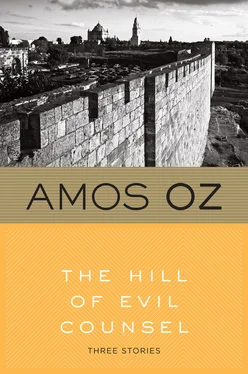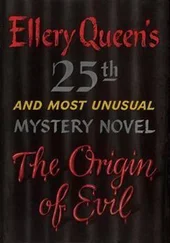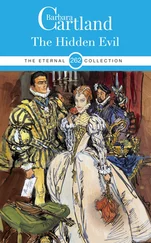Then the dancing began.
From among the trees, which were hung with colored lights, the musicians of the police and military bands advanced in threes, their buckles gleaming. The whole hill resounded with the sound of percussion and brass. From behind the palace, fireworks lit up the sky over the city and the desert. The admiral, flushed and tipsy, roared, "Heave ho, me hearties! Splice the main brace! All guns fire!"
How colorfully the ladies' ball gowns blossomed by the light of the lanterns and fireworks. How riotously the music flowed into the heart of the night. How joyfully, how frenziedly, the couples whirled, the ladies twined like young vines, the men whispering sweet words into their ears. The Sudanese servants, coal-black faces atop white tunics, stared in amazement.
The last days of Rome must have been like this, Father thought to himself. As the idea flashed through his mind, his optimistic blue eyes may have reflected a momentary sadness behind his round glasses.
Mother was immediately snatched up by Mr. Tsipkin, the Citrus King. Then she could be seen, blond and radiant, in the arms of the Swedish consul. Then again resting lightly against the shoulder of a dark giant sporting a pair of Latin mustachios. With hardly a pause to draw breath, she was swept up by a one-eyed, battle-scarred colonel with predatory yellow teeth.
Father looked away. He struck up a desultory conversation with his neighbor, Madame Josette al-Bishari. No doubt he was telling her all about the cattle he inspected, or perhaps preaching with ill-suppressed zeal about the benefits of drinking goats' milk.
The High Commissioner himself was wandering, lost in thought, among the guests. He paused for a moment at the table where Madame al-Bishari and Dr. Kipnis sat; abstractedly he picked up a cocktail biscuit, eyed it cautiously, and returned it to the dish. He smiled faintly at Madame Josette or Dr. Kipnis or perhaps toward the lights of Jerusalem behind their shoulders, and eventually he spoke:
"Well, well. I see you are both sitting it out. Why aren't you dancing? I expect you're secretly hatching some sort of intrigue; but I've caught you red-handed, in the name of the Crown. Just my little joke. Good evening to you both."
He turned and moved away, a slim, erect figure, to continue his tour of the tables.
Father said, in English with a heavy German accent:
"I know a man who superficially resembles Sir Alan but hates him bitterly."
Madame Josette answered at once, in fluent German, with a kind of strangled fervor:
"Anyway, there's no hope."
"I am unable to agree with you on that point, madame," Father said.
Madame Josette smiled patiently. "I shall try to explain myself by means of a small illustration. Take yourselves, for example. You have been leaving Europe for Palestine for forty years now. You will never arrive. At the same time, we are moving away from the desert toward Europe, and we shall never arrive, either. There is not even the ghost of a chance that we shall meet one another halfway. I suppose, sir, that you consider yourself a social democrat?"
Father expressed surprise. "Surely we are meeting at this very moment?"
To these words he received no reply.
The headmistress of the National High School for Girls slowly gathered up her belongings from the table, her silk handkerchief, her Virginia cigarettes, her fan with its picture of Notre Dame; she apologized in French, which Father could not understand, and a feminine slyness glimmered for an instant in her eyes. She moved slowly away from the table, an elegant yet unremarkable woman, thickening slightly around the hips, in a long Marlene Dietrich dress. Then she was gone.
He followed her with his eyes until she had vanished in the throng. Then he caught sight of his wife, thrown high above the lawn, with her mouth gaping open in a soundless exclamation of pleasure, then landing gently in the broad hands of the Hero of Malta. She was disheveled and excited, her lips parted, her blue dress lifted above her knees.
Admiral Sutherland laughed hoarsely and gave an exaggerated bow. He seized her hand and raised the palm to his lips, kissing, blowing, nuzzling. She touched his cheek quickly. Then the music changed, and they started dancing again, pressed tightly together, with her head on his shoulder and his arm around her waist.
The fireworks had finished. The music was dying away. Guests were already leaving, and still she whirled with the Hero of Malta on the dance floor on the lawn toward the wood, until the darkness and the trees hid them from Father's sight.
Meanwhile the High Commissioner had withdrawn. The Military Governor had left, in a convoy of armored cars and armed jeeps, for the King David Hotel. The last guests had taken their leave and disappeared toward the parking lot. Captain Chichester-Browne and even the Sudanese servants had deserted the lawns and vanished into the inner recesses of the palace.
Darkness fell on the Hill of Evil Counsel. The paper lanterns went out one by one. Only the searchlights continued to claw the gentle slope and the bushes that were gradually sinking into ever-deeper shadows. A dry coldness rose from the Judean Desert, which bounded the palace on the east. And groups of palace guards armed with Bren guns began to patrol the grounds.
Father stood alone beside the deserted fountain, which was still pouring out jets of light and water. Now he spotted a single goldfish in the marble pool. He was cold, and desperately tired. His mother and sisters had probably been murdered in Silesia or somewhere else. The cattle farm in Galilee would never exist, the monograph or poem would never be written. Hillel would have to be sent to a boarding school in one of the kibbutzim. He will hate me for it all his life. Dr. Ruppin is dead. Buber and Agnon will also die. If a Hebrew state is ever established, I shall not be running its veterinary service. If only the Underground would come this very minute and blow the whole place sky high. But that's not a nice thought. And I—
In his borrowed dress suit, with a white handkerchief peeping out of his top pocket, with the strange bow tie and his comical glasses, Hans Kipnis looked like a pathetic suitor in a silent film.
He closed his eyes. He suddenly remembered the wandering Bavarian ornithologist with whom he had cut a virgin path many years before to the remote sources of the Jordan in the farthest corner of the country. He recalled the coldness of the water and the snowy peaks of Mount Hermon. When he opened his eyes again, he saw Lady Bromley. She appeared like a wizened ghost from among the bushy oleanders, old, spoiled, seething with venomous zeal, in a dark shawl, doubled up with malicious glee.
"What you have lost tonight, sir, you will never find again. If you like, you can leave a message with me for the head gardener. But even he cannot save you, because he is a drunken Greek and a pathetic queer. Go home, my dear doctor. The party's over. Life nowadays is just like a stupid party. A little light, a little music, a little dancing, and then darkness. Look. The lights have been turned out. The leftovers have been thrown to the dogs. Go home, my dear doctor. Or must I wake up poor Lieutenant Grady and tell him to drive you?"
"I am waiting for my wife," said Father.
Lady Bromley let out a loud, ribald guffaw. "I have had four husbands, and none of them, I repeat, none of them ever said anything as fantastic as that. In all my life I've never heard a man talk like that, except perhaps in vulgar farces."
"I should be deeply grateful, madam, if you could give me some assistance, or direct me to someone who can help me. My wife has been dancing all evening, and she may have had a drop too much to drink. She must be around somewhere. Perhaps she has dozed off."
Читать дальше











